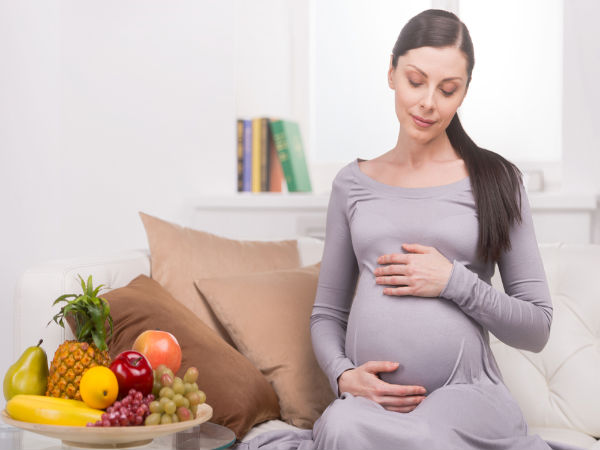13 Habits to avoid during pregnancy
Most women can continue with their everyday activities during pregnancy and only need to make some minor lifestyle changes. The health and well-being of both the woman and the developing fetus are of primary concern during pregnancy, so it is best to avoid consuming certain foods and doing potentially risky activities.
1)Drinking alcohol
When a pregnant woman drinks alcohol, the alcohol crosses the placenta and can affect the fetus. Drinking alcohol during pregnancy may cause fetal alcohol syndrome.
A fetus that gets exposure to alcohol in the womb may develop a wide range of fetal alcohol spectrum disorders. These disorders can cause the following health issues:
- physical abnormalities
- intellectual disabilities
- behavioral problems
- seizures
- poor growth
- developmental delays
- reduced coordination and fine motor skills
2)Eating certain foods
It is common for pregnant women to avoid certain foods during pregnancy, either due to a change in their sense of smell or because the food makes them feel ill. However, there are some foods that all pregnant women should avoid eating. These include:
- Lunch meat and deli salads: Deli meats and foods, such as premade chicken salad, may contain listeria. Listeria is a bacteria that can cross the placenta and may be deadly for the fetus.
- Unpasteurized juice and dairy: As with deli meats, unpasteurized dairy products and juices can contain listeria and other bacteria that may cause food poisoning.
- Some soft cheeses: Certain soft cheese may contain unpasteurized dairy, particularly imported soft cheeses, such as brie, feta, and queso blanco.
- Fish high in mercury: Swordfish, shark, and mackerel are among the fish that contain high levels of mercury. According to March of Dimes, exposing the fetus to mercury may cause brain damage or hearing and vision problems.
- Raw meat and fish: Raw meat and fish, including sushi and raw oysters, can contain both salmonella and toxoplasmosis. Pregnant women have an increased risk of getting foodborne illness from these pathogens. Foodborne illness may cause dehydration, fever, and intrauterine sepsis, a blood infection that can be deadly to the fetus.
- Raw eggs: Raw eggs can also contain salmonella. Pregnant women should avoid any foods that may contain raw eggs, such as unbaked cookie dough or homemade Caesar salad dressing.
3)Too much caffeine
In the same way as alcohol, caffeine can cross the placenta and affect the fetus.
While much of the data regarding pregnancy and caffeine consumption is inconclusive, research suggests that it is best to limit the intake of caffeine to 300 milligrams (mg) per day. Some experts believe that quantities greater than this can be harmful to the fetus and may increase the risk of pregnancy loss and low birth weight.
March of Dimes recommend that pregnant women consume no more than 200 mg of caffeine per day. This amounts to about 1.5 cups of coffee per day.
4)Hot tubs, saunas, and overheating
While relaxing in hot water may sound like an effective way to ease pregnancy discomfort, experts recommend avoiding hot tubs and saunas.
According to the American Pregnancy Association, hot tubs can cause hyperthermia, or abnormally high body temperature, which may lead to congenital abnormalities.
Additional activities that may cause the body temperature to rise too high include:
- hot yoga or Pilates
- sunbathing for too long
- exposure to extreme heat
- strenuous exercise
- dehydration
5)Contact sports
The American College of Obstetricians and Gynecologists recommend that pregnant women avoid contact sports, such as football or boxing.
Contact sports increase the risk of placental abruption, which is the premature separation of the placenta from the uterine wall. Placental abruption is a severe condition that can cause preterm birth, pregnancy loss, or stillbirth.
Pregnant women are also more prone to injury as hormonal changes in the body cause the ligaments to become looser.
6)Activities with a fall risk
After the first trimester, pregnant women should avoid any activity which carries the risk of falling, including skiing, ice-skating, and rock climbing.
During pregnancy, the center of gravity shifts as the belly expands, so even a minor fall may result in injuries.
7)Amusement park rides
Many amusement parks do not allow pregnant women on some rides, including roller coasters or any rides that may start or stop suddenly.
The jarring motion of these rides can cause placental abruption.
8)Changing a litter box
Pregnant women should avoid changing a litter box. Cleaning dirty litter boxes can put a person at risk of toxoplasmosis.
According to the Centers for Disease Control and Prevention (CDC), if a pregnant woman passes toxoplasmosis to the fetus, the baby may develop severe symptoms, including:
- blindness
- intellectual disabilities
- brain damage
- eye damage
9)Heavy lifting
According to the American Pregnancy Association, pregnant women should avoid heavy lifting. For some women, lifting heavy objects can increase the risk of:
- pulled muscles
- hernias
- low birth weight
- preterm labor
10)Smoking
Smoking cigarettes during pregnancy can cause harm to both the woman and the baby. Aside from an increased risk of heart disease and lung cancer, smoking when pregnant can also cause the following problems during and after pregnancy:
- premature birth
- congenital abnormalities, such as cleft lip or cleft palate
- sudden infant death syndrome
- issues with the placenta
Women should stop smoking as soon as they know that they are pregnant and avoid exposure to secondhand smoke. Women who are struggling to quit smoking can talk to a doctor about the help and additional resources that are available.
11)Drugs
While illegal drug use is always dangerous, it can be even more harmful during pregnancy.
Using illegal drugs or misusing certain prescription drugs can cause a newborn to go through neonatal abstinence syndrome (NAS). A baby with NAS will go through substance withdrawal at birth.
Additionally, drug use can increase the risk of stillbirth, pregnancy loss, and congenital abnormalities.
12)Taking certain medications
Pregnant women should avoid some over-the-counter (OTC) and prescription medications while pregnant, as these can harm the fetus.
Doctors recommend avoiding the following medications while pregnant:
- ibuprofen and other nonsteroidal anti-inflammatory drugs
- most herbal remedies
- ACE inhibitors
- some cold medications during the first trimester
- cold and flu medications that contain specific ingredients
- some acne medications
A doctor or pharmacist can provide advice on which medications are safe to use and can often recommend alternatives if women can no longer take their regular medicines.
13)Some types of exercise
Although doctors recommend that most pregnant women exercise, certain types of exercise are not suitable during pregnancy.
Pregnant women should try to avoid exercise that involves:
- bouncing, leaping, and jumping
- sudden changes in direction
- jarring or jerky movements
- abdominal exercises on the back, such as situps, after the first trimester
Many exercises, such as walking, swimming, and squats, can be beneficial during pregnancy. It is best to speak to a doctor about any existing or new exercise routines.


